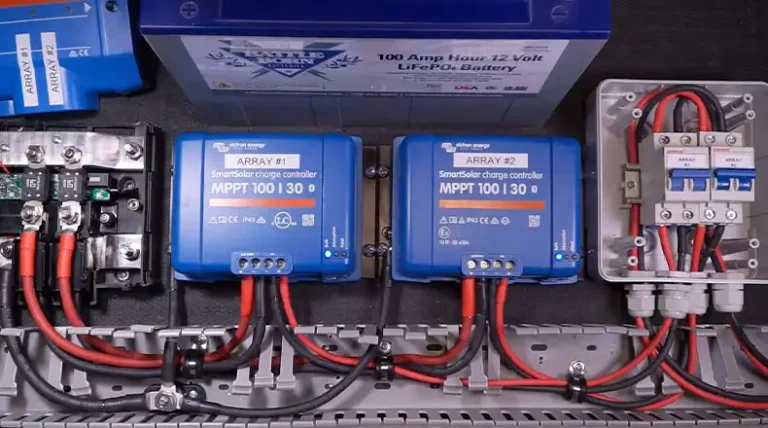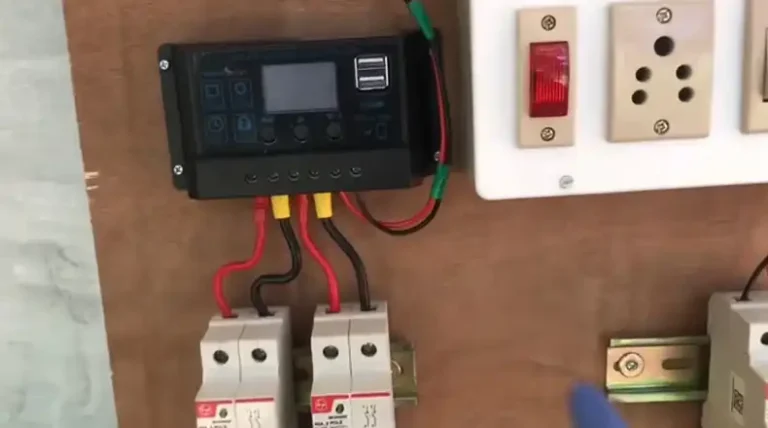Do Solar Loans Affect Credit Score | [Answerd]
We all know that installing solar panels is an eco-friendly and cost-saving solution, but the upfront expenses can be a significant barrier. For this, many individuals turn to solar loans to finance their solar projects, but the question is: do these loans impact credit scores?
In short, yes, solar loans can affect your credit score, just like any other type of loan. When you apply for a solar loan, the lender will perform a hard credit check, which can temporarily lower your credit score by a few points.
If you’re considering going solar but worried about the potential impact on your credit, worry not, making timely payments on your solar loan can help build your credit history and improve your score over time.
In this article, I will discuss the intricate relationship between solar loans and credit scores to provide you with the knowledge to make an informed decision. So, let’s read and unravel the mysteries surrounding this topic.
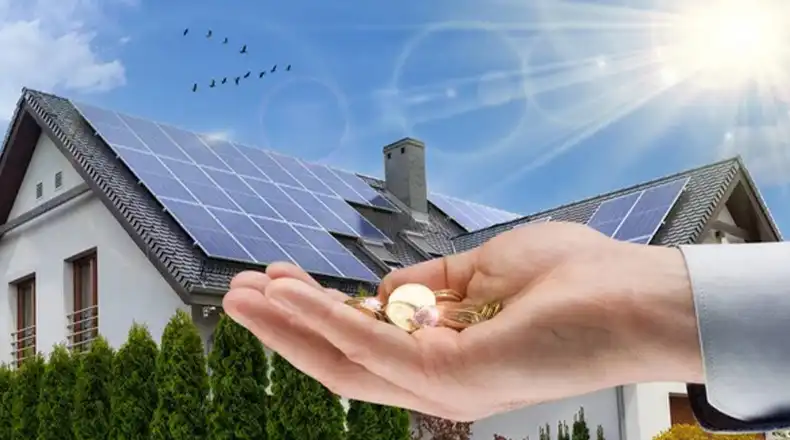
The Impact of Solar Loans on Credit Scores
A credit score is a three-digit number that represents your creditworthiness – your ability to repay debts responsibly. Lenders use credit scores to assess the risk of lending to you.
Higher credit scores generally indicate lower risk, which can qualify you for better interest rates and loan terms. Conversely, lower credit scores may result in higher interest rates or even loan denials.
To maintain a good credit score, we have to understand how solar loans impact our credit score. Let’s discuss below:
Hard Credit Inquiries
When you apply for a solar loan, the lender will perform a hard credit check, also known as a hard inquiry or hard pull. This process involves the lender reviewing your credit report to assess your creditworthiness.
A hard inquiry can temporarily cause a slight dip in your credit score, typically ranging from a few points to as much as 10 points, depending on your credit history. However, this impact is usually short-lived, and your score should recover within a few months as long as you continue to make timely payments on your existing debts.
New Credit Account
Opening a new credit account, such as a solar loan, can also have an impact on your credit score. When you take out a new loan, it can lower your credit score slightly due to factors like the age of your credit accounts and the ratio of your outstanding debt to your available credit.
However, as you make consistent, on-time payments on your solar loan, the negative impact on your credit score should diminish over time, and your credit history will improve.
Payment History
One of the most significant factors affecting your credit score is your payment history. Making timely payments on your solar loan can positively impact your credit score, as it demonstrates your ability to manage debt responsibly.
On the other hand, missing payments or defaulting on your solar loan can severely damage your credit score, as it indicates a higher risk of defaulting on other debts as well.
Credit Utilization Ratio
Another factor that can influence your credit score is your credit utilization ratio, which is the amount of credit you’re using compared to your total available credit. If you have a high credit utilization ratio, it can negatively impact your credit score, as lenders may perceive you as overextended.
However, if you maintain a low credit utilization ratio by keeping your balances low relative to your credit limits, it can positively affect your credit score.
Factors That Determine The Impact Of A Solar Loan On Your Credit Score
While solar loans generally impact credit scores in similar ways to other types of loans, several factors can determine the extent of the impact:
- Existing Credit History: If you have a well-established credit history with a high credit score, the impact of a solar loan may be less significant compared to someone with a limited or poor credit history.
- Loan Amount: The size of the solar loan can influence the impact on your credit score. Larger loan amounts may have a more substantial effect on factors like credit utilization and debt-to-income ratios.
- Repayment Term: Shorter loan terms with higher monthly payments may have a more significant impact on your credit utilization ratio and debt-to-income ratio compared to longer loan terms with smaller payments.
- Credit Mix: Lenders prefer to see a diverse mix of credit types, such as mortgages, credit cards, and installment loans like solar loans. If you have a well-rounded credit profile, the impact of a solar loan may be less severe.
- Credit Score Range: The impact of a solar loan may vary depending on your current credit score range. For example, someone with an excellent credit score may experience a smaller dip compared to someone with a fair or poor credit score.
It’s important to remember that the impact of a solar loan on your credit score is not permanent, and responsible management of your credit can help mitigate any negative effects over time.
Strategies for Minimizing the Impact on Your Credit Score
While solar loans can affect your credit score, there are strategies you can employ to minimize the impact:
- Shop Around for Lenders: When you apply for multiple solar loans within a short period (typically 14-45 days), the credit inquiries are often treated as a single inquiry, minimizing the impact on your credit score.
- Consider a Co-Signer: If you have a poor credit score or limited credit history, you may want to consider having a co-signer with a strong credit profile to increase your chances of approval and potentially qualify for better terms.
- Make Timely Payments: Establishing a consistent record of on-time payments is crucial for maintaining and improving your credit score. Set up automatic payments or payment reminders to ensure you never miss a due date.
- Monitor Your Credit Report: Regularly reviewing your credit report can help you identify and address any potential issues or inaccuracies that could be negatively impacting your score.
- Maintain a Healthy Credit Mix: Lenders prefer to see a diverse mix of credit types, such as mortgages, credit cards, and installment loans like solar loans. Having a well-rounded credit profile can positively affect your score.
Conclusion
While solar loans can indeed impact your credit score, the effects are typically temporary and manageable. By making timely payments, maintaining a healthy credit profile, and employing strategies like shopping around for lenders and considering a co-signer, you can minimize any negative impact on your credit score. Remember, the long-term benefits of going solar, such as energy savings and environmental sustainability, often outweigh the short-term credit score fluctuations.
Thank you for taking the time to read this guide. We hope it has provided you with valuable insights and empowered you to make an informed decision about your solar journey. Wishing you the best of luck in your pursuit of sustainable energy solutions!
FAQs
How Long Does It Take For A Solar Loan To Reflect On My Credit Report?
It typically takes 30-60 days for a new solar loan to appear on your credit report after the loan has been approved and disbursed.
Can Making On-Time Payments On My Solar Loan Improve My Credit Score?
Yes, making consistent, on-time payments on your solar loan can help improve your credit score over time by demonstrating responsible credit management and building a positive payment history.
Are There Any Risks To My Credit Score If I Default On A Solar Loan?
Yes, defaulting on a solar loan can severely damage your credit score, as it indicates a high risk of defaulting on other debts as well. Late or missed payments will be reported to the credit bureaus, negatively impacting your credit score and making it harder to obtain credit in the future.
Can I Get A Solar Loan With Bad Credit?
While it may be more challenging to qualify for a solar loan with poor credit, some lenders offer options for borrowers with lower credit scores, such as requiring a larger down payment or a co-signer.
What Is The Minimum Credit Score Required For A Solar Loan?
Most solar lenders typically require a credit score of at least 650 to qualify for a solar loan, but the exact requirements may vary from lender to lender.
How Long Does A Hard Inquiry Stay On My Credit Report?
A hard inquiry from a solar loan application can remain on your credit report for up to two years, but its impact on your credit score diminishes over time.
How Much Can A Solar Loan Increase My Monthly Expenses?
The monthly payment for a solar loan will depend on factors like the loan amount, interest rate, and loan term. However, the long-term energy savings from your solar system can potentially offset or even exceed the loan payments.
Is It Better To Pay Cash Or Get A Solar Loan?
The decision to pay cash or get a solar loan depends on your financial situation and preferences. Paying cash upfront can save you interest fees, but a solar loan can make the initial investment more manageable and potentially provide tax benefits.

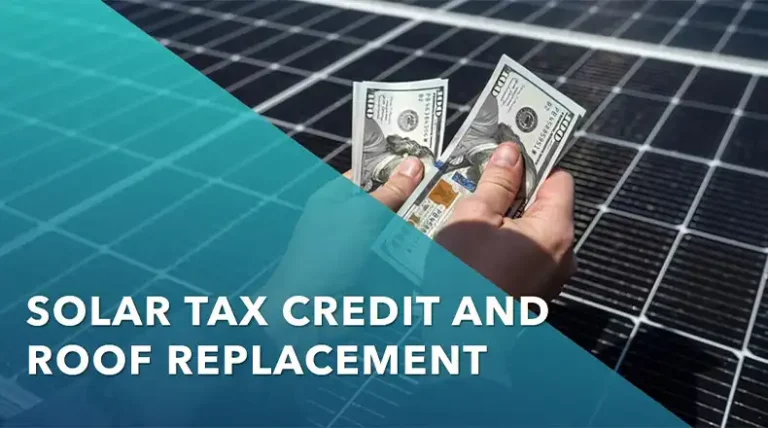
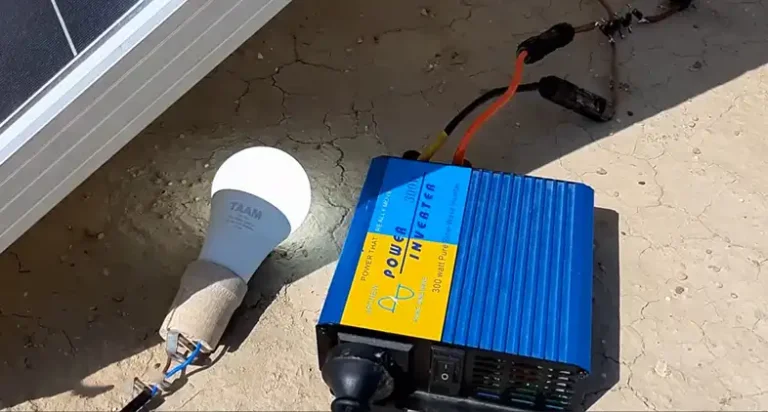
![Do Solar Roof Vents Work At Night [Answerd]](https://www.itekenergy.com/wp-content/uploads/2024/04/Do-Solar-Roof-Vents-Work-At-Night-768x428.webp)
![Can a Broken Solar Panel Still Work? [Answerd]](https://www.itekenergy.com/wp-content/uploads/2024/05/Can-a-Broken-Solar-Panel-Still-Work-768x428.webp)
